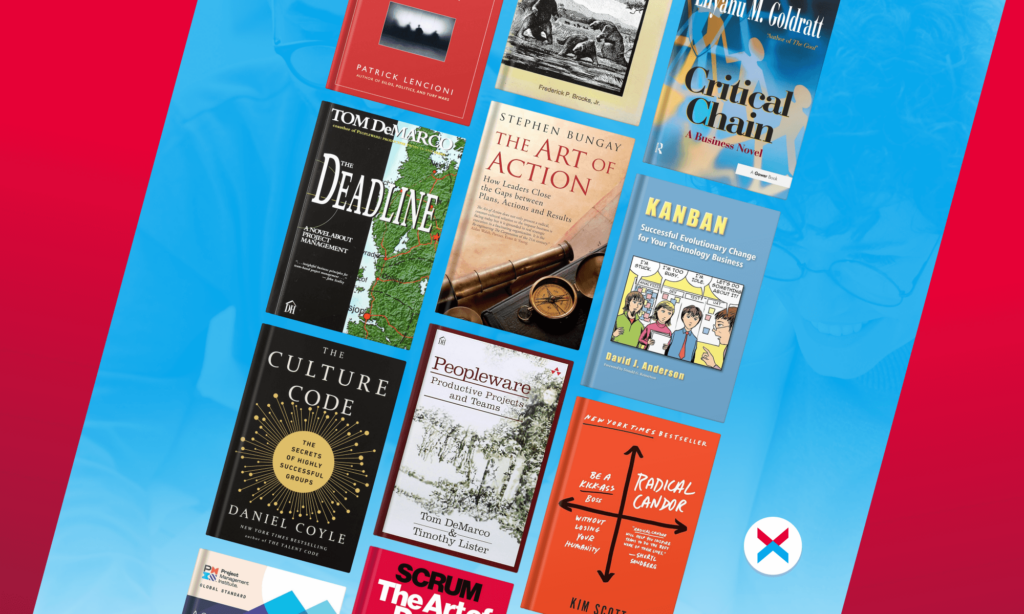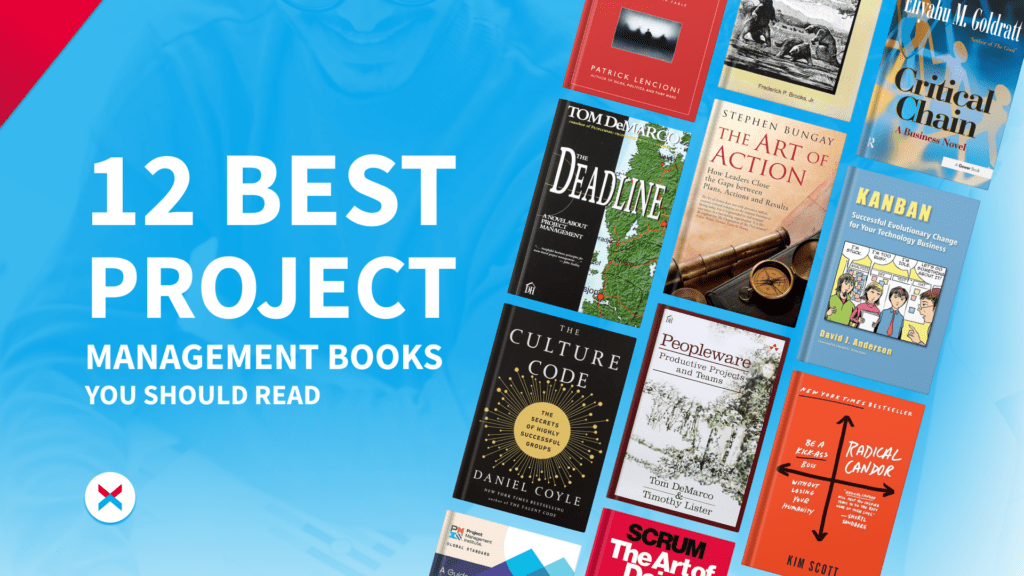
What sets successful project managers apart? Regardless of their experience, they constantly seek new knowledge and keep up with trends in their field. That’s why they continually read project management books. With so many options available, which ones should you choose? At NIX, we believe these books are essential reads for every project manager.
Please note: no single project management book covers all specialized topics. In fact, none of them is universal. Some publications are more suitable for those at the beginning of their careers, while others are better suited for experienced project managers. Therefore, our list of must-reads is divided according to the level of expertise of the specialists.
Project Management Books for Newbies
Those new to the career of project management should not start with complex theoretical books filled with rich terminology and extensive concepts on how to manage projects. This can distract from the core project management principles. Instead, start with project management books that present fundamental concepts and practices in a clear, straightforward, and approachable way. These introductory resources are not only beneficial for those directly involved in project management but can also be interesting and valuable for non-project managers seeking to understand the basics of project organization and efficiency.
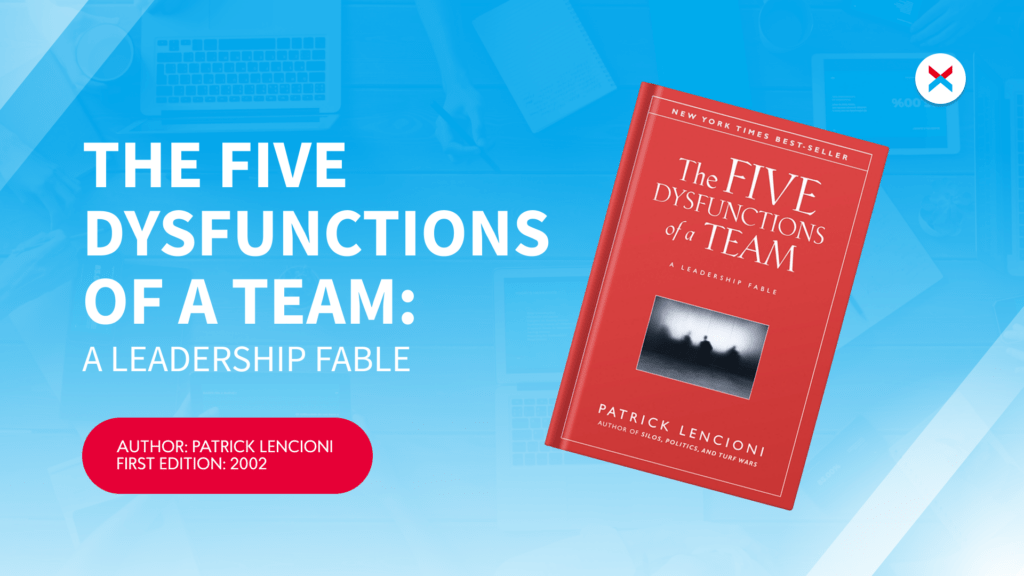
The Five Dysfunctions of a Team: A Leadership Fable
Author: Patrick Lencioni
First edition: 2002
For almost 30 years, Patrick Lencioni has been helping companies improve their team processes as a consultant. He has written 13 books about business, but The Five Dysfunctions of a Team is always on the list of the best project management books. This is not surprising because its total circulation has already exceeded 3 million copies!
This is a collection of fiction stories with familiar characters. The plot centers on a fictional company called DecisionTech. Its management, represented by Catherine Petersen, faces problems in team interaction. They demonstrate 5 fundamental issues: lack of trust, fear of conflict, lack of commitment, evasion of responsibility, and inattention to results. The way the main character succeeds in solving the obstacles allows us to create and demonstrate a holistic management system. It is not for nothing that the knowledge from this book about management is used not only by managers in industry but also, for example, by coaches in the NFL!
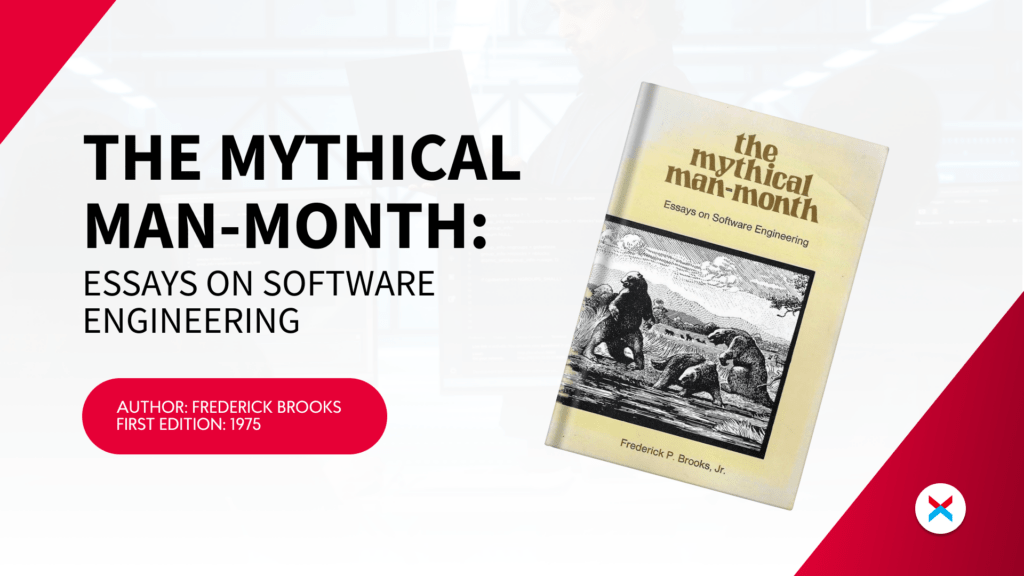
The Mythical Man-Month: Essays on Software Engineering
Author: Frederick Brooks
First edition: 1975
Frederick Brooks is an outstanding master of his craft. He learned from his teacher Howard Aitken, the creator of the first American computer, who worked at IBM and taught at the University of North Carolina at Chapel Hill. Brooks received the Turing Prize for his contributions to computer architecture, operating systems, and software engineering.
Brooks wrote several works, but one of his best project management books is The Mythical Man-Month. Even after half a century, it remains relevant! The book consists of essays inspired by the creation of the IBM System/360 computer and OS/360 operating system. As a manager of these successful projects, Brooks identified recurring problems that led to development delays. For example, adding people to a project that is behind schedule can lead to time loss. Brooks also discusses project estimation, prototyping, version control, cost reduction, and more.
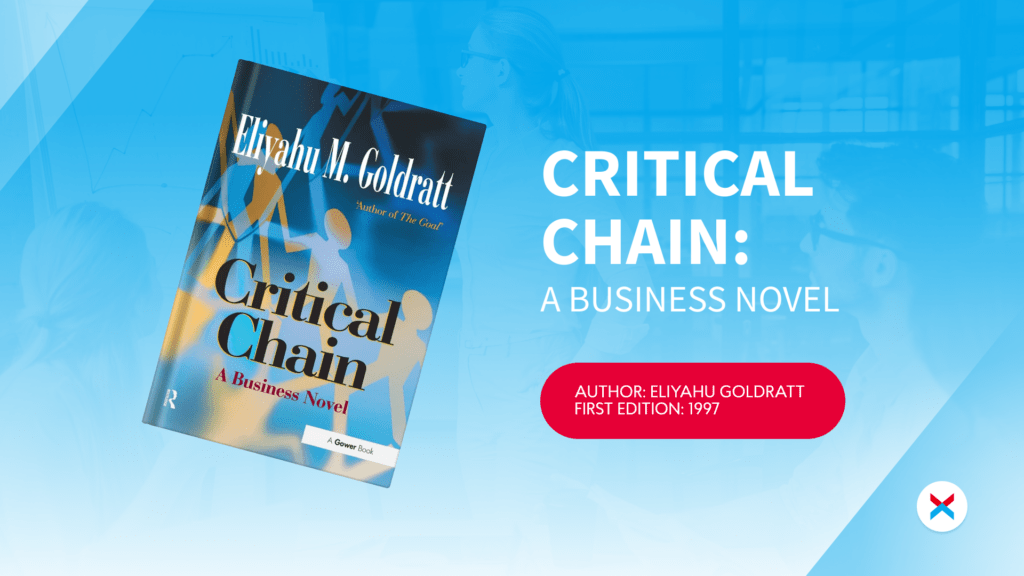
Critical Chain
Author: Eliyahu Goldratt
First edition: 1997
Eliyahu Goldratt is known for developing the Theory of Constraints (TOC), a model of production management where efficiency depends on identifying and correcting critical system constraints. Goldratt’s most popular book, The Goal, introduced TOC. However, for our list, we recommend Critical Chain.
Critical Chain is a fiction novel whose protagonist is a professor trying to get a job at a business school and faces problems in managing the education system. In the book, Goldratt develops TOC into Critical Chain Project Management (CCPM). While other PM models focus on precise planning and adherence to task order, CCPM emphasizes resource allocation and defining buffers. This approach helps teams improve productivity, meet deadlines better, and not overspend the budget.
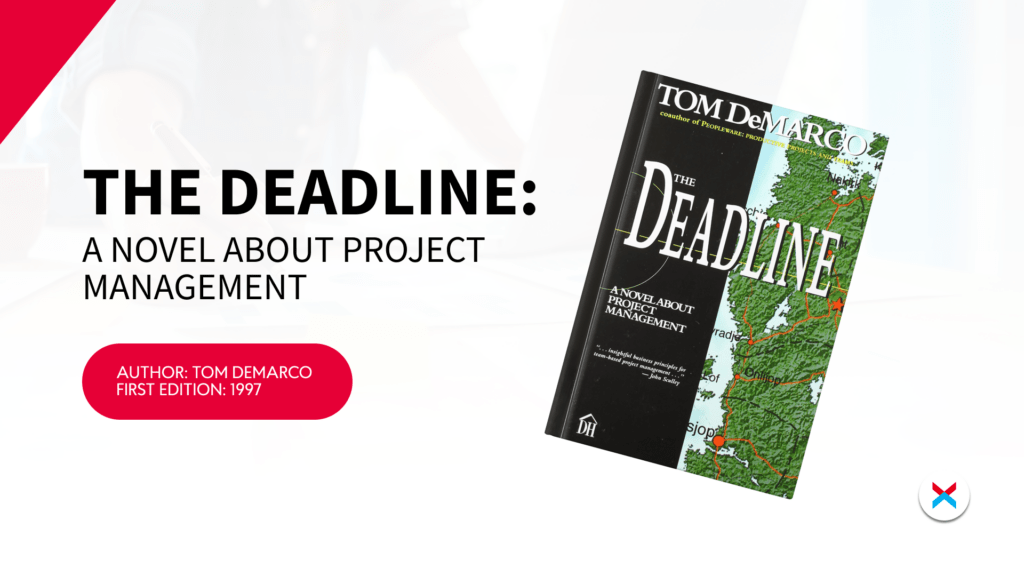
The Deadline: A Novel About Project Management
Author: Tom DeMarco
First edition: 1997
Tom DeMarco is known primarily for his contributions to the theory of structural analysis, which software development teams use to define specifications based on vague requirements. However, this engineer has also written more than ten project management books.
The Deadline is, as the full title suggests, a novel. It is fiction, written in a witty style with elements of action-packed storytelling. The main character, Mr. Thompson, has to manage the creation of six software products. He divides all employees into 18 teams, three for each project. All of them must achieve the highest rate of task completion. The manager compares strategies and practices of the best project management. Some say that the book is better suited for Waterfall than Agile, but its overall value for beginners remains significant.
Project Management Books For Beginners
Once you have an understanding of project management basics, it’s time to delve into more serious project management books. These theoretical textbooks, practical manuals, and guides provide the knowledge and skills vital for a confident start in the profession. They help you clearly understand how what it is like to manage projects. We also recommend reading our article about the main PM tools, which is another important success factor.
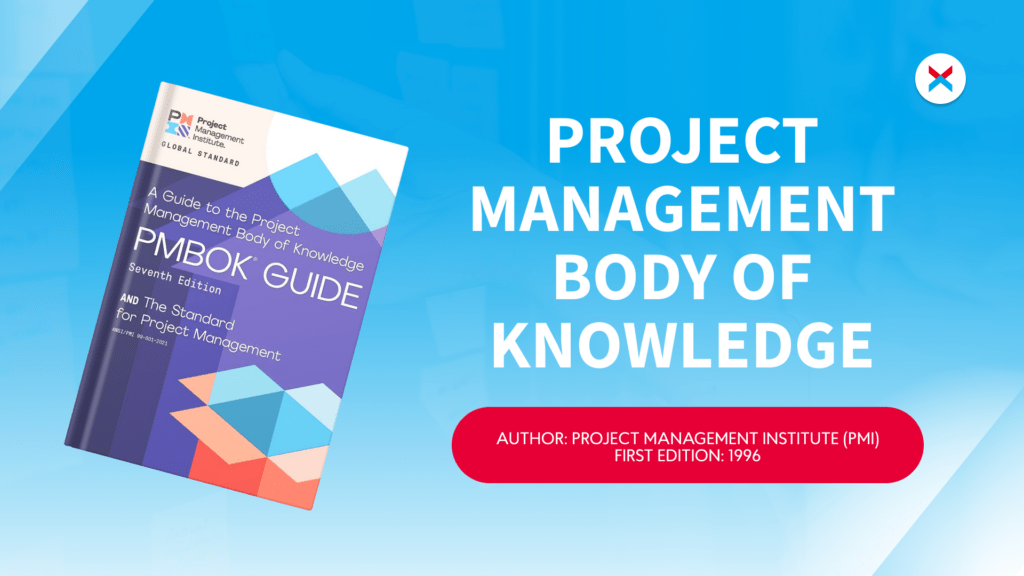
Project Management Body of Knowledge
Author: Project Management Institute (PMI)
First edition: 1996. However, read the 7th, most recent edition
This book was created by the Project Management Institute (PMI), an international organization comprising millions of project management professionals worldwide. For these professionals, the Project Management Body of Knowledge (PMBOK) serves as a crucial resource, akin to a bible, providing quality answers to any project management questions.
The PMBOK is a comprehensive guide to project management and is considered a standard in the field. This is not just a metaphor! The PMBOK forms the basis of standards set by the International Organization for Standardization (ISO) and the American National Standards Institute (ANSI), and is essential for the PMP exam. It covers all aspects of project management, from goal setting and planning to risk management and quality assessment.
The book is regularly updated to reflect the latest in project management practices. The seventh edition, released in 2021, has undergone significant changes. Unlike previous editions, it no longer focuses on processes alone but emphasizes the principles of project management.
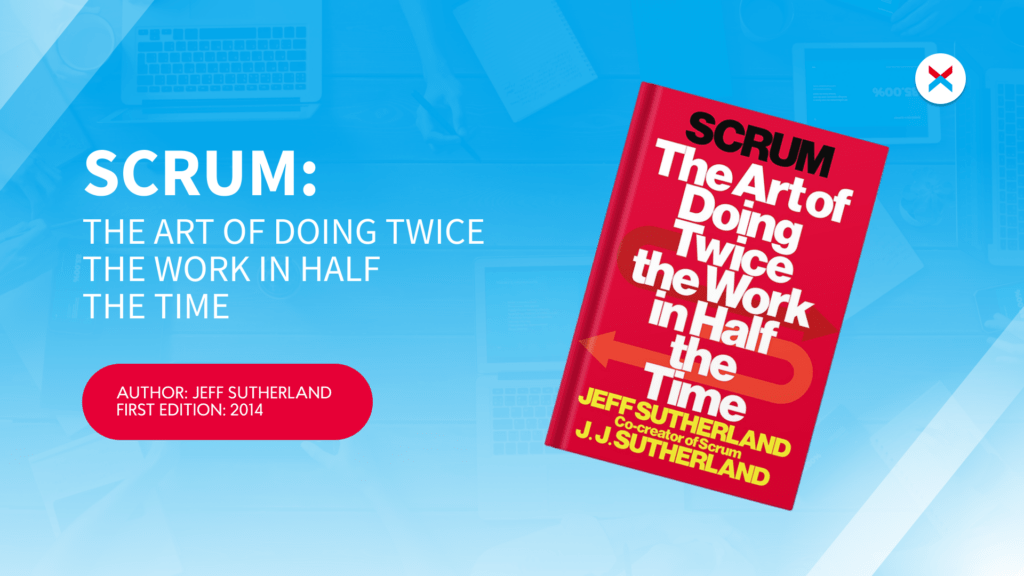
Scrum: The Art of Doing Twice the Work in Half the Time
Author: Jeff Sutherland
First edition: 2014
Few individuals have had as profound an impact on the development of modern agile project management methodologies in the IT industry as Jeff Sutherland. As a researcher, programmer, and project manager, Sutherland co-authored Scrum and contributed to the Agile Manifesto.
Given this, it is difficult to imagine a list of essential project management books without including Sutherland’s work, Scrum: The Art of Doing Twice the Work in Half the Time. In this book, Sutherland details the Scrum methodology extensively: covering project roles, a systematic approach to iterative development, the concept of sprints, backlog management, result analysis, management artifacts, and ceremonies. The book also explores key principles such as team self-management, a focus on quality, and transparent communication. These theoretical concepts are enriched with engaging real-life stories and examples.
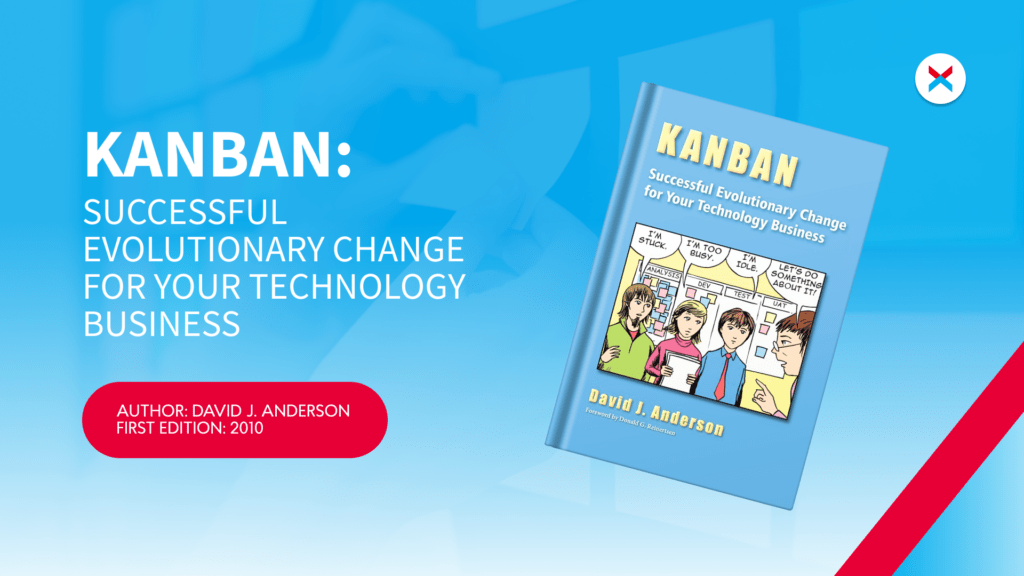
Kanban: Successful Evolutionary Change for Your Technology Business
Author: David J. Anderson
First edition: 2010
David J. Anderson’s experience with large projects at IBM, Motorola, and Microsoft provided him with insights into common software development challenges and inspired his development of a successful project management system for IT projects. This is detailed in the “blue” book, as it is known in the Kanban community (contrasting with the “red” Scrum book).
However, the design of project management book covers is secondary to their content. More importantly, Anderson’s book offers a clear and visual explanation of Kanban, its benefits, and how to integrate it into team processes while continuously making improvements. It includes practical and helpful tips and case studies on implementing the methodology in real-world settings. After reading this book, it becomes evident that Kanban is more than just a visually appealing process management tool—it’s a highly effective agile project management system that can improve productivity.
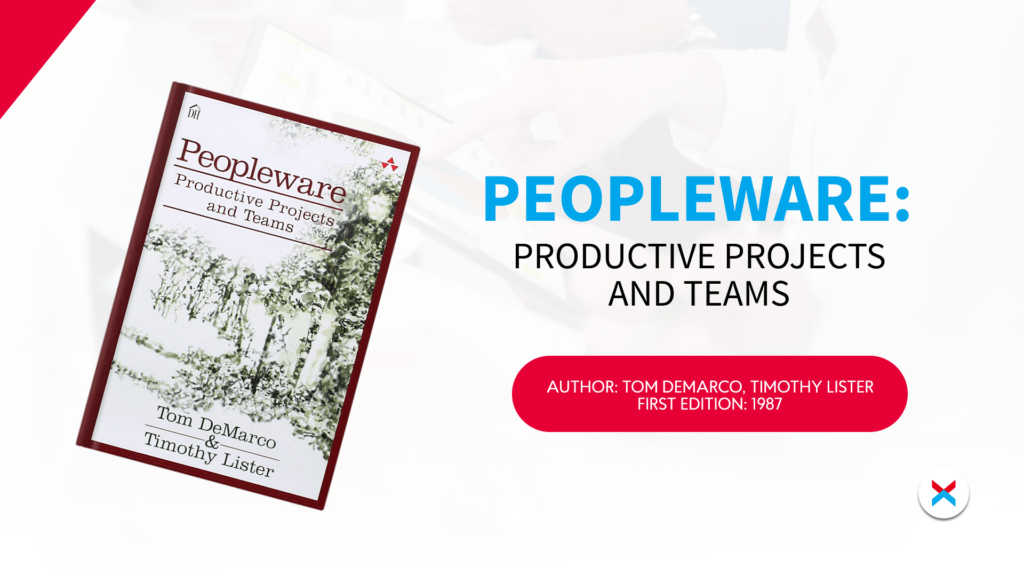
Peopleware: Productive Projects and Teams
Author: Tom DeMarco, Timothy Lister
First edition: 1987
Another essential reading for project managers by the master, Tom DeMarco, co-authored with consultant Timothy Lister. The book has undergone several updates and reprints, with the latest edition published in 2016, and it fully deserves a place on the modern list of must-have publications for management at any level.
While The Deadline focuses on comparing management models, this book focuses on the human side of project management. The authors demonstrate that process-related problems often stem from interpersonal relationships rather than technology. Through real and fictional examples, they show how to select the right people for a team, build trust, achieve task autonomy, implement plans and changes, and track progress. DeMarco and Lister also touch on the topics of corporate ideology, work-life balance, and even the importance of silence in the work environment.
Management Books for an Experienced Project Manager
Professional knowledge alone is not enough to succeed in your project manager career. To master project management, you need to develop and master soft skills, particularly the ability to communicate effectively with each team member. Specialized management books focusing on specific subtopics can help you achieve this. With this knowledge and these skills, you can confidently apply for a mid-Level Project Manager position.
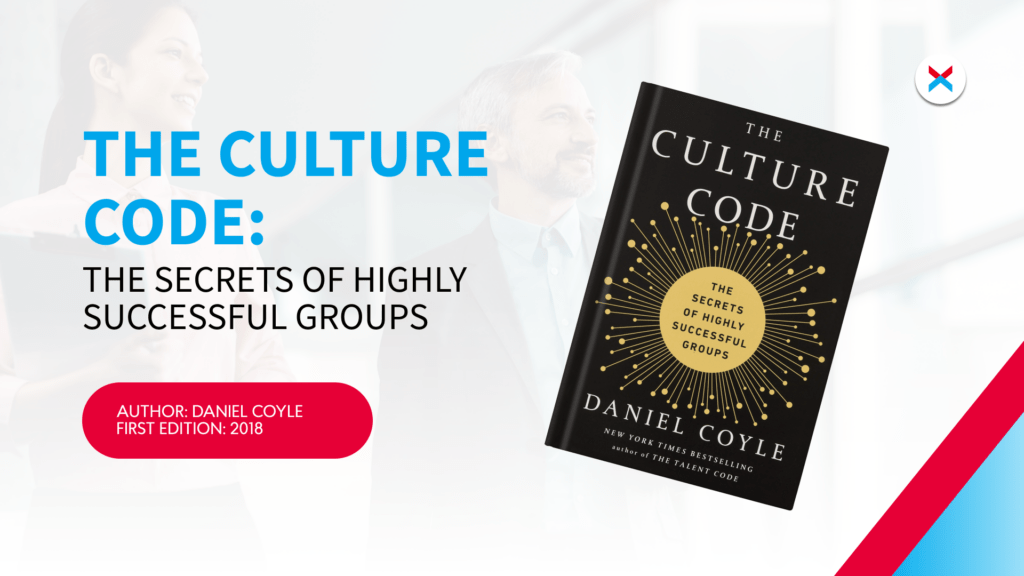
The Culture Code: The Secrets of Highly Successful Groups
Author: Daniel Coyle
First edition: 2018
Daniel Coyle has worked as a consultant with companies ranging from Microsoft and Google to the U.S. Navy SEALs and the Cleveland Guardians baseball team. He understands team spirit and talent development, having written eight nonfiction and fiction project management books.
His main bestseller, The Culture Code, explains how to create a successful corporate culture. Coyle conducted extensive research on practices at diverse companies such as Pixar Animation Studios, Zappos, the San Antonio Spurs basketball team, and the Upright Citizens Brigade comedy troupe. Using these examples, he proves that successful, non-toxic teams are not accidental. Coyle highlights the importance of focusing on three management factors: security, vulnerability sharing, and a clear goal. The theory in the book is complemented by practical advice to help teams be both successful and happy.

Crucial Conversations: Tools for Talking When Stakes Are High
Authors: Kerry Patterson, Joseph Grenny, Ron McMillan, Al Switzler
First edition: 2002
Patterson, Grenny, McMillan, and Switzler founded VitalSmarts over 30 years ago, which was renamed Crucial Learning in 2021. The company provides team training for clients, including Facebook, Toyota, Boeing, and Cisco. Their collective knowledge is distilled in Crucial Conversations, one of the best books on project management.
Initially published in 2002, the book has been updated twice, in 2011 and 2022, with a total circulation of 4 million copies. The authors offer practical tips on planning and conducting conversations on difficult topics, ranging from cold sales and criticizing colleagues to asking for debt repayment and ending relationships. The book teaches how to be persuasive without aggression, listen effectively, avoid escalation, and find the best solutions both in the workplace and personal life.
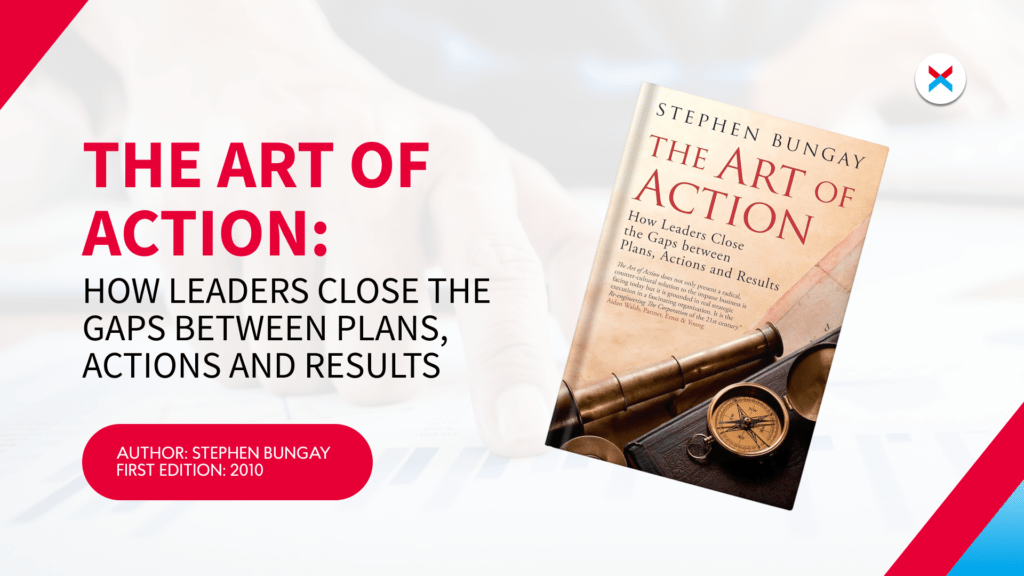
The Art of Action: How Leaders Close the Gaps between Plans, Actions, and Results
Author: Stephen Bungay
First edition: 2010
Stephen Bungay has extensive experience as a project manager and consultant. He worked for 17 years at Boston Consulting Group, was a division manager at an insurance company, and is the director of the Center for Strategic Management in Ashridge, England. His passion for history is reflected in almost all of his four project management books.
The Art of Action is not a typical project management book. It describes the nineteenth-century Prussian army and its leadership and applies these lessons to modern management. Bungay argues that the gap between plans and results is often due to flawed plans rather than roadmap violations. Using military management as an example, he shows that a correct strategy is essential and should be understood by all team members. This aligns closely with Agile principles.
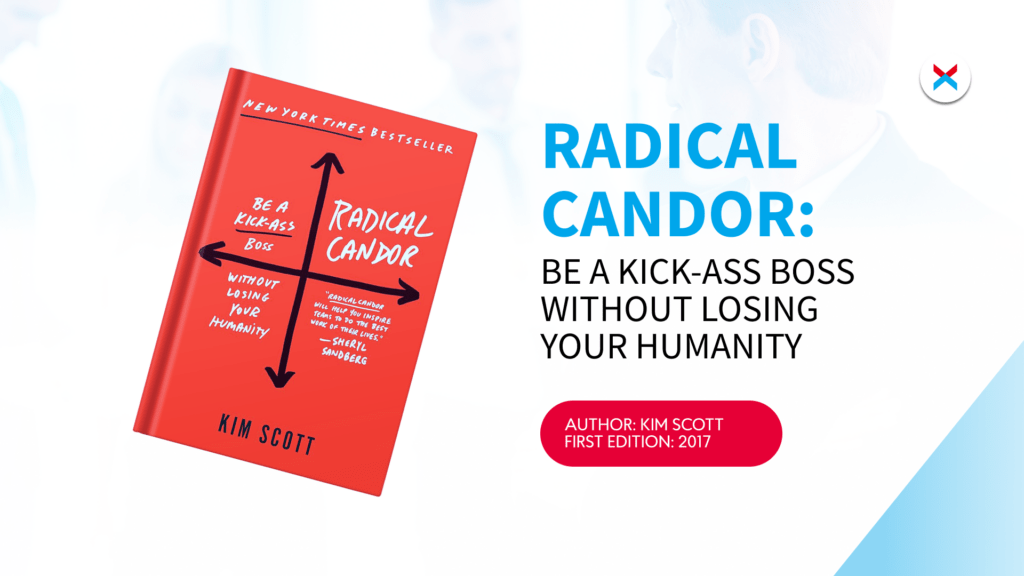
Radical Candor: Be a Kick-Ass Boss Without Losing Your Humanity
Author: Kim Scott
First edition: 2017
Kim Scott is well-versed in business within tech companies, having been a project manager at Apple, Google, and YouTube, and an advisor to executives at Twitter and Dropbox. She co-founded Radical Candor, a training company that teaches the management style, from her first book (she has written two project management books).
Radical candor is essential for stress-free productivity, a healthy feedback culture, and a trusting team atmosphere. Scott’s key idea is that a leader should care about people while challenging them. She demonstrates that challenges without care lead to aggression, care without challenges leads to complacency, and the absence of both leads to manipulation. Scott provides a seven-step methodology: listen, clarify, discuss, decide, persuade, execute, and learn. These steps help both project managers and subordinates achieve their goals.
Do Not Limit Yourself to This List
In conclusion, it’s worth reiterating the importance of continuous development for competent and skilled project managers. Constantly reading new books is key to this growth. So, don’t limit yourself to this list of the best project management books! The art of project management is multifaceted, interesting, and often provides unexpected insights. Sometimes, lesser-known and not widely promoted project management books can offer valuable knowledge.
If you want to move from reading to practice, sign up for a FREE project management course from NIX. This is a great opportunity to start a career in project management! Over 10 weeks of training, you will learn the basics of project management, analyze many real-life examples of successful projects, and hear reviews of numerous important management books. You will gain practical knowledge and skills. Moreover, upon completing the training, you can apply for a project manager position with the NIX team. Don’t miss your chance!
